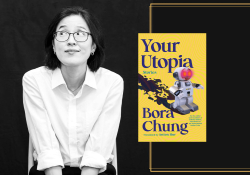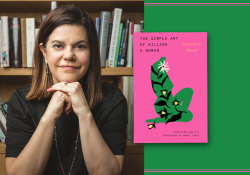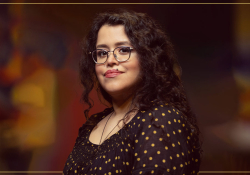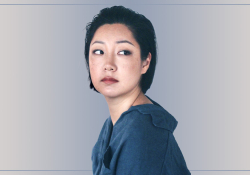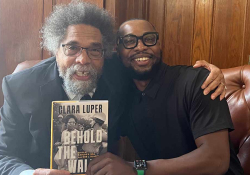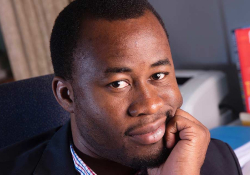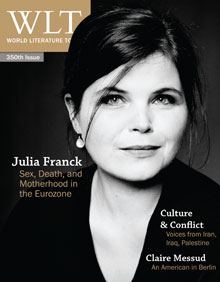Writing from the Gaps: A Conversation with Julia Franck
The novels of Julia Franck (b. 1970, East Berlin) draw on German literary tradition to explore the interconnection of private lives and public histories. Die Mittagsfrau (2007; Eng. The Blindness of the Heart, 2009), which won the German Book Prize in 2007 and was shortlisted for the Independent Foreign Fiction Prize in 2010, has been translated into more than thirty languages. Her latest novel, Rücken an Rücken (2011), is forthcoming as Back to Back in spring 2013; an excerpt follows (page 56).
The following conversation took place over several weeks in early 2012. Although I interviewed Julia Franck in person several years ago, we have maintained an e-mail correspondence since 2006. This interview was an opportunity to revisit several topics in a pointed way, including Franck’s role as a public intellectual and a feminist, which has changed significantly with the publication of her two most recent novels.
Alexandra M. Hill: Your new book, Rücken an Rücken (Back to back), is based on some details from the history of your family. This is also the case with your novels Die Mittagsfrau (Eng. The Blindness of the Heart, 2009) and Lagerfeuer (Campfire) and the short story “Streuselschne-cke” (Danish pastry). To what extent does your family history influence your literary works?
Julia Franck: Maybe this is a period in my work. I can only determine that later. It would be unnatural if certain twists in my family didn’t have any influence on my work. They have shaped me and form the basis of my writing, and maybe simply the need to write. Perception always happens along the path determined by experiences that have come before. They shape the structure of the brain as they do the matrix of the spirit and soul. Psychology and biology (neurophysiology) are completely agreed in this. Each “invention” is a highly subjective thinkable and possible thing. In my case, these are histories and breaks in a family that, according to Hitler’s ideology, were not allowed to exist. The enormous questioning of one’s own existence and the anomaly of the breaks in my family belong to my identity. There are extremely few Jews who had even the defiance, the will, and the courage to go back to Germany after 1945. Thus I create from the gaps and cracks. I work with the doubted right to exist. I take advantage of the right to do so and work out the uncertainty and the doubt in such stories.
AMH: Four years ago, I asked you whether you create intentionally negative mother figures in your books. You said that you find the characters that have flaws to be more interesting. But the mother in Back to Back is also negative, which makes me think this is a pattern. Why are the mothers in your works so often cold and withdrawn—sometimes even abusive?
JF: In my view, every human has this side. Since the turn of the century (from the nineteenth to the twentieth), women in particular were finally allowed to be humans and perceived as such. On the other side of their clichéd roles as woodcut-like saints or whores, they are more complex—and also fractured and torn. They have wishes, dreams, and demands; they fail with respect to their ideas and ideologies. Thus they fail to live up to their sexually established roles as the good mother or the seductive temptress, or as the projection screen. That is oddly irritating for modern readers. Society is much more evolved, but one still expects that the female figures in a novel will fit into their sexually determined clichés.
I don’t believe that these women are really negative. If I gave Käthe a male name, one would find this “father” quite normal and only ask where the mother of these children is. I believe the negativity and the coldness and the hardness that readers discover in these novels reflects above all the longing in the reader for a loving and caring mother. This cliché is anchored in us, thanks to our cultural customs.
(This is an excerpt. Read the full interview in either the print or digital edition of World Literature Today.)
